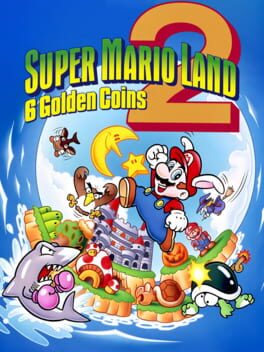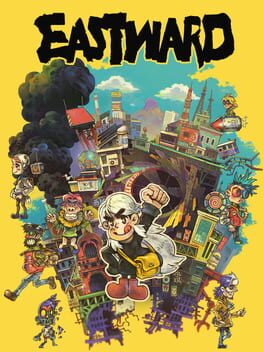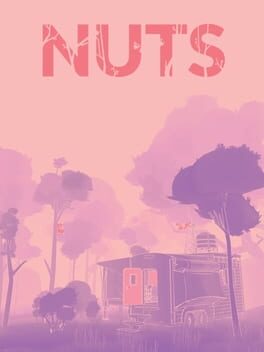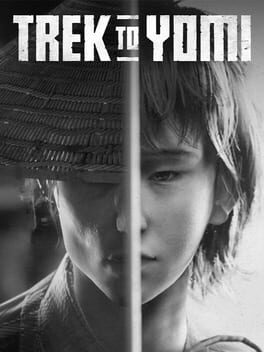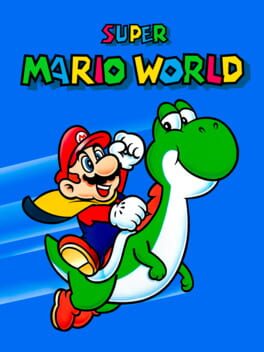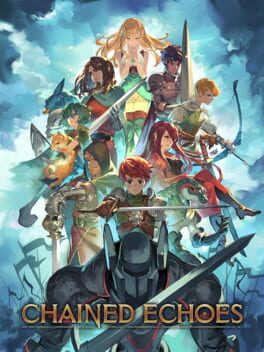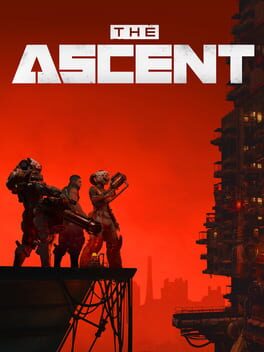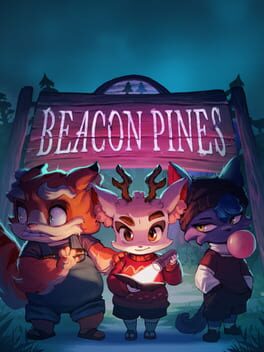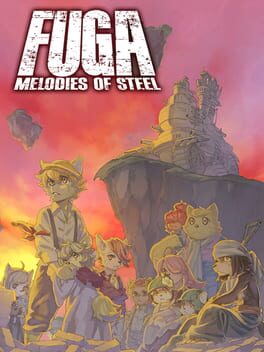MagoDaZueira
Mario Land 2 is much more conscious than its predecessor that it's a Game Boy game, and because of that its entire design is very different from the usual Mario platforms. It's not at all designed around Mario's speed and fluidity of movement: rather, Mario Land 2 chooses a more compact level design over the more free and expansive one you often see in 2D Marios. Because of that, this game ends up with a much more static, less dynamic level design, making it also really easy (besides the last level, we don't talk about that). There's even more verticality here than I expected to see in a Game Boy game, all thanks to the level design trying to find ways to shine despite being unable to rely on Mario's speed. Not to say it ends up really actually shining, but hey, it tries to.
As such, the gameplay flow is wildly different from the plumber's other games, and while I prefer the pacing of those, I understand how such adaptations were necessary considering the system it was released in. Besides finding the level design here worse, though, I think it allowed for some truly unique level ideas, quirkier even that those present in SMB3 or SMW, which I already consider quite distinctive. Each world has its own theme, each one vastly different from the rest, and this is where Mario Land 2 really shines. Its more methodic level approach complements the feeling of the surreal places Mario visits across the island, which intrigues the player even more exactly because of the slower pace of it all.
So yeah, while I do think its level design is quite boring and easy, it serves a purpose that sets the game apart from the rest of the series. Also, the soundtrack of both this and Mario Land 1 are actually kinda insane, and I have no idea how they managed to fit such banger themes into a Game Boy.
As such, the gameplay flow is wildly different from the plumber's other games, and while I prefer the pacing of those, I understand how such adaptations were necessary considering the system it was released in. Besides finding the level design here worse, though, I think it allowed for some truly unique level ideas, quirkier even that those present in SMB3 or SMW, which I already consider quite distinctive. Each world has its own theme, each one vastly different from the rest, and this is where Mario Land 2 really shines. Its more methodic level approach complements the feeling of the surreal places Mario visits across the island, which intrigues the player even more exactly because of the slower pace of it all.
So yeah, while I do think its level design is quite boring and easy, it serves a purpose that sets the game apart from the rest of the series. Also, the soundtrack of both this and Mario Land 1 are actually kinda insane, and I have no idea how they managed to fit such banger themes into a Game Boy.
2021
This has been mentioned a lot already, but there's no way to overlook just how great Eastward's presentation is. Its pixel art is one of the best I've ever seen, and the music is versatile and mostly feels fresh across the game's lengthy playtime.
This makes it even more unfortunate that the story didn't reach its full potential, which I could sometimes catch a glimpse of, but never fully grasp. The pacing is really slow, but even with the game dragging along so many moments, I never felt like the story beats were developed beyond a shallow level.
There were many characters that I really liked, but they lack a context around them to really shine. One aspect of that is the plot itself, with few and badly paced interesting situations for the characters to act upon. Also, the there's almost no world-building on this game, especially on a smaller scale basis like towns, character relationships and past events, which weakens the characters surroundings story-wise.
That last bit, especially, could be greatly expanded upon, even more so if you consider Eastwards' graphics, and how capable they are of depicting the game's post-apocalyptic world as lively but cohesively as it does. This would allow for truly unique and well fleshed out sceneries.
The gameplay is decent, but quite bland and derivative, almost not evolving conceptually throughout the entirety of the game. It works and I was able to vibe with it at times, but there's not a lot worth mentioning.
I really wanted to love Eastward. But the truth is that, while I don't love it, I actually do like it. I really like the characters, it's just a shame that they don't come to full fruition. And the story, inconsistently developed as it is, allows for glimpses of something much more interesting as a whole. Even though it may seem that I like Eastward just for the potential of a game that isn't actually there, I in truth do enjoy it for what it is, since even if there is a good amount of wasted potential written all over it, that is only so because the game underlying it all is charming, enticing and unique most of the times.
This makes it even more unfortunate that the story didn't reach its full potential, which I could sometimes catch a glimpse of, but never fully grasp. The pacing is really slow, but even with the game dragging along so many moments, I never felt like the story beats were developed beyond a shallow level.
There were many characters that I really liked, but they lack a context around them to really shine. One aspect of that is the plot itself, with few and badly paced interesting situations for the characters to act upon. Also, the there's almost no world-building on this game, especially on a smaller scale basis like towns, character relationships and past events, which weakens the characters surroundings story-wise.
That last bit, especially, could be greatly expanded upon, even more so if you consider Eastwards' graphics, and how capable they are of depicting the game's post-apocalyptic world as lively but cohesively as it does. This would allow for truly unique and well fleshed out sceneries.
The gameplay is decent, but quite bland and derivative, almost not evolving conceptually throughout the entirety of the game. It works and I was able to vibe with it at times, but there's not a lot worth mentioning.
I really wanted to love Eastward. But the truth is that, while I don't love it, I actually do like it. I really like the characters, it's just a shame that they don't come to full fruition. And the story, inconsistently developed as it is, allows for glimpses of something much more interesting as a whole. Even though it may seem that I like Eastward just for the potential of a game that isn't actually there, I in truth do enjoy it for what it is, since even if there is a good amount of wasted potential written all over it, that is only so because the game underlying it all is charming, enticing and unique most of the times.
2022
I’ve never been a big horror games fan, and can’t say I’ve played a lot of the PS1 era ones this game seems to be inspired by.
What I can say, though, is that Signalis is awesome. The atmosphere is almost perfect, despite being a little hindered by a lack of visual variety. The story’s got style, impact and pacing done right, which can get hard when the narrative sets out for as much subjetivism and non-linearity as this game’s does.
Overall, I was enticed by Signalis’ vibes from the beginning of the game to the end of it. They’re a mix of tension, speculation and awe in a way I had no idea I’d find in this game, that ends up being much more than the sum of its parts.
What I can say, though, is that Signalis is awesome. The atmosphere is almost perfect, despite being a little hindered by a lack of visual variety. The story’s got style, impact and pacing done right, which can get hard when the narrative sets out for as much subjetivism and non-linearity as this game’s does.
Overall, I was enticed by Signalis’ vibes from the beginning of the game to the end of it. They’re a mix of tension, speculation and awe in a way I had no idea I’d find in this game, that ends up being much more than the sum of its parts.
2022
Immortality has layer upon layer of storytelling, each composed of their own enticing narrative and connected to the others in unimaginably tight ways. On top of that, each of these said layer brings thought-provoking ideas on life and art, especially with well crafted critiques on the latter and its current state.
I loved it.
I loved it.
2021
Nuts is quite self-contained, it doesn't try to grasp more than it can, and maybe because of that the gameplay got old fast, and the story didn't expand upon itself as much as it could.
The artstyle and overall vibes, though, were nailed. The restrained color palette choices are good, despite being confusing at times, and contribute to the simplicity of the game.
Maybe, had I liked its story more than I have (I think it can be a better one for some people), I would have enjoyed Nuts more as a whole. In the end, however, it was worthwhile to chase after some funny little squirrels and just enjoy the serene forests it presents during the 3 hours I beat it in.
The artstyle and overall vibes, though, were nailed. The restrained color palette choices are good, despite being confusing at times, and contribute to the simplicity of the game.
Maybe, had I liked its story more than I have (I think it can be a better one for some people), I would have enjoyed Nuts more as a whole. In the end, however, it was worthwhile to chase after some funny little squirrels and just enjoy the serene forests it presents during the 3 hours I beat it in.
2019
There isn’t much to say that hasn’t been already, but just wanna say I’m really impressed by how enticing and addicting this gameplay loop gets. I’ve beaten it at around 150h, the longest it ever took for me to finish a game, and I just never grew tired of it. So much so that now I feel like I gotta play the rest of the Personas, SMT and even the spinoffs, because those 150 hours went by so fluidly.
P5R got immaculate vibes, beacause of its characters, music (OMG the music) and overall style, and is truly something unique. Sure, it got flaws, but its vibes just straight up override all of them.
P5R got immaculate vibes, beacause of its characters, music (OMG the music) and overall style, and is truly something unique. Sure, it got flaws, but its vibes just straight up override all of them.
It's crazy how much stuff Nintendo got right here, especially considering this is only the 3rd entry on a series that, for some tens of future entries, would follow a formula fundamentally based on this game.
Because of this big influence ALTTP had, though, many other modern titles, and not only Zelda ones, borrowed something from this formula and in many cases improved upon it. Being so, it's hard to dismiss how formulaic and basic some of its systems feel. That, however, is just a consequence of me having played a fair share of "Zelda-likes", so it's not a problem of that game per se, since these nowadays bland parts of it were revolutionary at the time of its release. Some aspects of the gameplay are included in that, but I still like the constant risk/reward situations you get into while using the sword, especially because of the small hitbox its attacks have, and it feels, aside from some hiccups here and there, tightly-knit.
Those nitpicks aside, the brilliance of ALTTP's design is mesmerizing. The dungeons have a great flow, requiring some thinking from the player but always allowing that thought process to be as clear as possible, through scenery hints, simplicity and a linearity that doesn't restrict the player, while stops them to straying too far off the beaten path. The overworld, too, hardly ever had me totally lost like sometimes I was while playing the original LoZ, an improvement already visible in Zelda II, which offered a handful of tips on how to progress, but even more effective in this game. There is also the whole Light/Dark World mechanic, but that is obviously such a great idea that just by saying that it was masterfully implemented by Nintendo is already enough to state how well it fits the game, contributing to the already established by the first game sense of wonder and curiosity that emerge while exploring this Hyrule.
Awesome music, awesome design and ideas, rewarding exploration and good gameplay. It's an all-around excellent title that charmed me and pulled me in even after 30+ years of its initial release.
Because of this big influence ALTTP had, though, many other modern titles, and not only Zelda ones, borrowed something from this formula and in many cases improved upon it. Being so, it's hard to dismiss how formulaic and basic some of its systems feel. That, however, is just a consequence of me having played a fair share of "Zelda-likes", so it's not a problem of that game per se, since these nowadays bland parts of it were revolutionary at the time of its release. Some aspects of the gameplay are included in that, but I still like the constant risk/reward situations you get into while using the sword, especially because of the small hitbox its attacks have, and it feels, aside from some hiccups here and there, tightly-knit.
Those nitpicks aside, the brilliance of ALTTP's design is mesmerizing. The dungeons have a great flow, requiring some thinking from the player but always allowing that thought process to be as clear as possible, through scenery hints, simplicity and a linearity that doesn't restrict the player, while stops them to straying too far off the beaten path. The overworld, too, hardly ever had me totally lost like sometimes I was while playing the original LoZ, an improvement already visible in Zelda II, which offered a handful of tips on how to progress, but even more effective in this game. There is also the whole Light/Dark World mechanic, but that is obviously such a great idea that just by saying that it was masterfully implemented by Nintendo is already enough to state how well it fits the game, contributing to the already established by the first game sense of wonder and curiosity that emerge while exploring this Hyrule.
Awesome music, awesome design and ideas, rewarding exploration and good gameplay. It's an all-around excellent title that charmed me and pulled me in even after 30+ years of its initial release.
2022
I like it when a game prioritizes and values its style above its other aspects, but that only works when it conveys something, when it serves a purpose based on the fact that it is a game
Trek to Yomi is not like that. It is a clear example of “style over substance”, but its style just doesn’t mean anything. Instead, when you try to interact with the world it presents it just rings hollow.
In the end, basically every facet of what makes this game a game feels lacking. And I don’t mean only the lackluster combat gameplay or all the action aspects it has, but actually the interactiveness with its world as a whole just never feels alive.
I must say, though, that I really do enjoy its artstyle, even if it doesn’t have enough substance supporting it, and I could find some fun in its combat, even though rarely.
It’s good that Trek to Yomi tries something that on the surface at least seems different, but it unfortunately isn’t as good as it could be.
Trek to Yomi is not like that. It is a clear example of “style over substance”, but its style just doesn’t mean anything. Instead, when you try to interact with the world it presents it just rings hollow.
In the end, basically every facet of what makes this game a game feels lacking. And I don’t mean only the lackluster combat gameplay or all the action aspects it has, but actually the interactiveness with its world as a whole just never feels alive.
I must say, though, that I really do enjoy its artstyle, even if it doesn’t have enough substance supporting it, and I could find some fun in its combat, even though rarely.
It’s good that Trek to Yomi tries something that on the surface at least seems different, but it unfortunately isn’t as good as it could be.
1990
One of the best Mario 2D games when it comes to how he controls, and its many secrets make the world feel much more alive than the previous installments, and honestly even more enticing than most the more recent New series games
I overall prefer SMB 3’s difficulty and level design in that it tries out so many different ideas across its levels, and maybe I like that one better than World because of that.
This is, however, an undeniable step forward when it comes to what Mario games are today, and I really hope that they have been taking some inspiration from Mario World and 3 when creating the upcoming Mario Wonder, because the unique charm and quirkiness it seems to be pursuing are abundant in these games.
I overall prefer SMB 3’s difficulty and level design in that it tries out so many different ideas across its levels, and maybe I like that one better than World because of that.
This is, however, an undeniable step forward when it comes to what Mario games are today, and I really hope that they have been taking some inspiration from Mario World and 3 when creating the upcoming Mario Wonder, because the unique charm and quirkiness it seems to be pursuing are abundant in these games.
2022
A real diamond in the rough if I've ever seen one.
Chained Echoes lacks polish, and with polish I don't exactly mean bug-fixing or balancing things around, as the word is commonly used, but rather refining and iterating on the ideas concerning its story, combat and progression. Sure, it was made by a solo dev, and polishing a game of this scope all alone is no easy task.
I really liked some of the ideas going into it, though, and think that this game's got enough personality so as to differentiate itself from its inspirations. The story beats can be quite tropey at times, but even then it was possible to perceive the charm behind it all.
An overall great experience that, even though shallow and unpolished sometimes, successfully states what it wants to, and is not only a neat love-letter to 16-bit JRPGs, but also a glimpse of the future of the genre and how it can evolve going forward.
Chained Echoes lacks polish, and with polish I don't exactly mean bug-fixing or balancing things around, as the word is commonly used, but rather refining and iterating on the ideas concerning its story, combat and progression. Sure, it was made by a solo dev, and polishing a game of this scope all alone is no easy task.
I really liked some of the ideas going into it, though, and think that this game's got enough personality so as to differentiate itself from its inspirations. The story beats can be quite tropey at times, but even then it was possible to perceive the charm behind it all.
An overall great experience that, even though shallow and unpolished sometimes, successfully states what it wants to, and is not only a neat love-letter to 16-bit JRPGs, but also a glimpse of the future of the genre and how it can evolve going forward.
2019
One of the most wholesome games out there, extremely charismatic with its unique 3d pixel art and really funny characters. As far as I’m concerned, the game absolutely nails everything it sets out to do
Playing A Short Hike is, in its entirety, a breath of fresh air, one that is suitable for every situation, even if you don’t think you need said fresh air
Playing A Short Hike is, in its entirety, a breath of fresh air, one that is suitable for every situation, even if you don’t think you need said fresh air
2021
This game lacks in a lot of areas. The story is really bland, too dependent on cyberpunk tropes, and the progress is unsatisfactory (money/level ups), with a fair share of unbalanced weapons (which could be a turnoff in a looter-shooter). And, of course, there are also the long sections of just walking around, which i would skip with a taxi had i realized money wouldn’t be a problem whatsoever
I, however, enjoyed playing through it. Its setting and music create a well crafted atmosphere, and the gameplay was fluid, with satisfactory enough combat, and since i didn’t care that much for the story, it was kind of a blast just blazing through it with a podcast in the background
I, however, enjoyed playing through it. Its setting and music create a well crafted atmosphere, and the gameplay was fluid, with satisfactory enough combat, and since i didn’t care that much for the story, it was kind of a blast just blazing through it with a podcast in the background
2022
Beacon Pines' narrative has an engaging pacing and a is crafted with a finesse I didn't expect to find here.
The story beats are... kinda intense. The always present awesome music is explosive at most times, and the unique art style tirelessly begs you to look at every inch of it. The variety of the narrative tones keep this intensity from feeling bland and turns it, instead, into a way of reinforcing the story being told.
I really enjoyed my time with this game, and for me it almost perfectly shows the ways that short, story focused games can add an unique flair to the narrative that wouldn't be so easily achievable on a game with a larger scope. It feels different, and I love it for that.
The story beats are... kinda intense. The always present awesome music is explosive at most times, and the unique art style tirelessly begs you to look at every inch of it. The variety of the narrative tones keep this intensity from feeling bland and turns it, instead, into a way of reinforcing the story being told.
I really enjoyed my time with this game, and for me it almost perfectly shows the ways that short, story focused games can add an unique flair to the narrative that wouldn't be so easily achievable on a game with a larger scope. It feels different, and I love it for that.
Fuga was, for me, a highly enticing and charming adventure overall. The gameplay loop, for half chunk of the game, worked well, in that, maybe because of its streamlined JRPG structure, every system seamlessly fed into each other.
So yeah, just saying that I really do like this game and can feel all the heart and passion that went into creating it. I had never played a CyberConnect game before, but am now eager to do so. Fuga is unique and brings, for the most part, battles that feels like puzzles while also having great risk/reward and tension/relief gameplay structure. The things this game gets right alone made it worth it for me.
Even with all that, though, I can point out a lot of major things that hinder the overall experience from reaching the full potencial it has.
Starting out the bad stuff, then, I must admit that the game does overstay its welcome, so that after around 10 - 15 hours (beat it at ~20) I started to notice that some of its parts were not working that well anymore. Its difficulty, while engaging at first, was, at a certain point, completely overcome by my finding of optimal strategies, and even though I continued to iterate and experiment upon some different party combos, the challenge just wasn't there anymore, and the battles started to feel unnecessarily long and repetitive, for my solution to most of them was kinda same, even more due to a certain degree of repetition of skills across party members.
The intermissions were interesting, but after the point when the game started to drag out more there were not a lot of incentives for me to keep up the micromanaging of resources (namely AP) I set out to do doing at the start of my run.
This part also circles back to the battles, in which at a certain point I had like almost 20 high SP recovery items which, even when using lots of highly SP-consuming skills, I only had to use 1 or 2 of per chapter. This, too, reduced the necessity of a stronger strategy, and with that the stakes of the battles were also diminished, which in turn affected the stakes of the overarching war story in general. I ended up dying only once throughout the entirety of the game, at the beginning/middle of it, because of some dumb decisions I made in a fight, since I didn't have enough familiarity with the fights to understand the streamlining process of each of them yet.
Speaking of stakes, there is the soul-cannon, and while it seems to be a cool idea on the surface, the thought of using it never crossed my mind, since I faced no hardships that would lead me to. If the cannon were in the game simply as tone-setter or stakes-elevating mechanism, it would be ok, I'd just choose to never use it and matters would be settled. The problem is that, much like in Mass Effect 3 where, because of the suicide mission at the end of 2, there would be no way of the devs building a strong story centered around its characters since half of them could have straight up died in the last game, they effectively didn't, here in Fuga any of the characters could be shot out of the cannon and died at any moment. This complicates things, since there are close to none deep character development because of that, those being left out for "link events" during the intermissions, which (even though I didn't see all of them) usually are filler and don't bring much new things to the table, while the main story could, if more fleshed out.
All of that, though, didn't break the game at all for me. The combat kept being fun at times, even after the 15 hour mark, and the longer battles were not such a slog since I had podcasts on in the background during most of them at that point. I still think it is worth playing through, and still believe it is an 8 out of 10 game, a great one, stopped from reaching the peaks it could because of a handful of problems.
So yeah, just saying that I really do like this game and can feel all the heart and passion that went into creating it. I had never played a CyberConnect game before, but am now eager to do so. Fuga is unique and brings, for the most part, battles that feels like puzzles while also having great risk/reward and tension/relief gameplay structure. The things this game gets right alone made it worth it for me.
Even with all that, though, I can point out a lot of major things that hinder the overall experience from reaching the full potencial it has.
Starting out the bad stuff, then, I must admit that the game does overstay its welcome, so that after around 10 - 15 hours (beat it at ~20) I started to notice that some of its parts were not working that well anymore. Its difficulty, while engaging at first, was, at a certain point, completely overcome by my finding of optimal strategies, and even though I continued to iterate and experiment upon some different party combos, the challenge just wasn't there anymore, and the battles started to feel unnecessarily long and repetitive, for my solution to most of them was kinda same, even more due to a certain degree of repetition of skills across party members.
The intermissions were interesting, but after the point when the game started to drag out more there were not a lot of incentives for me to keep up the micromanaging of resources (namely AP) I set out to do doing at the start of my run.
This part also circles back to the battles, in which at a certain point I had like almost 20 high SP recovery items which, even when using lots of highly SP-consuming skills, I only had to use 1 or 2 of per chapter. This, too, reduced the necessity of a stronger strategy, and with that the stakes of the battles were also diminished, which in turn affected the stakes of the overarching war story in general. I ended up dying only once throughout the entirety of the game, at the beginning/middle of it, because of some dumb decisions I made in a fight, since I didn't have enough familiarity with the fights to understand the streamlining process of each of them yet.
Speaking of stakes, there is the soul-cannon, and while it seems to be a cool idea on the surface, the thought of using it never crossed my mind, since I faced no hardships that would lead me to. If the cannon were in the game simply as tone-setter or stakes-elevating mechanism, it would be ok, I'd just choose to never use it and matters would be settled. The problem is that, much like in Mass Effect 3 where, because of the suicide mission at the end of 2, there would be no way of the devs building a strong story centered around its characters since half of them could have straight up died in the last game, they effectively didn't, here in Fuga any of the characters could be shot out of the cannon and died at any moment. This complicates things, since there are close to none deep character development because of that, those being left out for "link events" during the intermissions, which (even though I didn't see all of them) usually are filler and don't bring much new things to the table, while the main story could, if more fleshed out.
All of that, though, didn't break the game at all for me. The combat kept being fun at times, even after the 15 hour mark, and the longer battles were not such a slog since I had podcasts on in the background during most of them at that point. I still think it is worth playing through, and still believe it is an 8 out of 10 game, a great one, stopped from reaching the peaks it could because of a handful of problems.
2015
This game is Yakuza at its peak. It’s got basically perfect gameplay loop for what it tries to be, that is, among all the things you could possibly do in its jam-packed open world, you will have fun, independently of what you choose to do inside it. You can play 10 of the ingenious substories one after the other, just follow the main quest or straight up play minigames for 5 hours, if you so wish. It doesn’t matter, whatever i did in this game was always fun.
Ryu Ga Gotoku struck gold with this one, and even though i don’t think any of the other games are quite as good as Yakuza 0, i’m still glad to see that the subsequent games (Y6, LAD and the Kiwamis) maintained a high quality bar as well, which this game series truly deserves.
Ryu Ga Gotoku struck gold with this one, and even though i don’t think any of the other games are quite as good as Yakuza 0, i’m still glad to see that the subsequent games (Y6, LAD and the Kiwamis) maintained a high quality bar as well, which this game series truly deserves.
